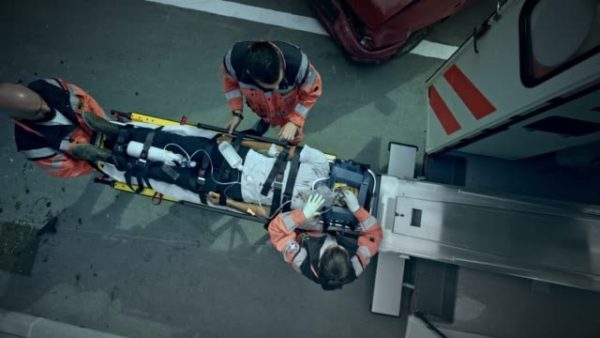In 2022, Georgia witnessed over 158,000 accidents attributed to distracted driving alone, highlighting not just the physical but also the significant emotional and psychological toll these incidents can impose on victims of busy areas like Decatur, Atlanta, etc. The aftermath of such accidents often includes long-term mental health challenges like anxiety, depression, and PTSD, which can be as debilitating as the physical injuries themselves.

To navigate these complex issues, it’s crucial to hire a skilled injury lawyer who understands the full scope of consequences following an accident. A knowledgeable attorney can help ensure that all aspects of a victim’s suffering are addressed in their claim, including emotional distress and psychological impact. This holistic approach to personal injury cases is essential for securing comprehensive compensation that supports both immediate and long-term recovery.
The Psychological Toll of Personal Injuries
Sustaining a personal injury can trigger a range of psychologically challenging responses. It is not uncommon for individuals to experience heightened levels of anxiety or even develop symptoms of post-traumatic stress disorder (PTSD) following an accident or injury. The sudden nature of such events and the potentially grave consequences can have a significant impact on one’s emotional state.
Depression and Emotional Distress
One common psychological consequence of personal injuries is depression. Feelings associated with depression may include sadness, hopelessness, loss of interest in previously enjoyed activities, and difficulty concentrating or making decisions. Individuals who experience ongoing chronic pain resulting from their injuries are especially prone to depression due to persistent physical discomfort.
Anxiety and Post-Traumatic Stress Disorder (PTSD)
Anxiety is another common emotional response to personal injuries. For many people, being involved in an accident creates a heightened level of fear and worry related to recurring traumatic experiences or future accidents occurring again. In some cases, these anxiety symptoms may escalate into PTSD symptoms such as flashbacks, nightmares about the incident, or even changes in behavior like avoiding certain activities or places reminiscent of the trauma.
Loss of Confidence
Personal injuries can also lead to a loss of self-confidence for those affected by them. This could occur due to permanent physical changes resulting from the injury or due to apprehension regarding engaging in activities that were once enjoyed but now carry an increased risk factor. Consequently, individuals may withdraw socially or underestimate their ability to return fully to their normal lives.
Coping Mechanisms for Emotional and Psychological Challenges
Recognizing the emotional and psychological impact of personal injuries is the first step toward addressing these challenges effectively. There are several coping mechanisms individuals can employ to manage their emotional well-being during this difficult time:
Seek Professional Help
Every personal injury lawyer in Decatur recommends seeking support from mental health professionals, such as counselors or therapists, which can be highly beneficial for those struggling with emotional or psychological issues following a personal injury. They provide a safe and supportive environment for individuals to voice their concerns and develop effective coping strategies.
Build a Support Network
It is vital to surround oneself with a strong support system of family, friends, or support groups who provide encouragement, understanding, and empathy. These individuals can offer guidance and help alleviate feelings of loneliness or distress.
Engage in Relaxation Techniques
Practices such as meditation, deep breathing exercises, yoga, or mindfulness can help alleviate stress and anxiety commonly associated with personal injuries. They encourage relaxation and promote mental clarity while also reducing physical tension.
Focus on Positive Self-Care
Self-care is essential for promoting overall well-being during the recovery process. Engaging in activities that bring joy or practicing healthy habits such as getting enough rest, eating well-balanced meals, and participating in gentle exercise all contribute positively to one’s emotional state.
Take Small Steps Towards Recovery
Taking small steps towards regaining confidence can be incredibly empowering. Gradually reintroducing activities that were previously enjoyed but had been avoided due to fear or anxiety helps rebuild confidence levels over time.
Conclusion
The emotional and psychological impact of personal injuries should not be overlooked when discussing the overall consequences such incidents have on individuals’ lives. Addressing these challenges through therapeutic approaches along with adequate social support plays a crucial role in ensuring a comprehensive recovery process for those living with personal injuries. By recognizing this multidimensional aspect of rehabilitation, we can work towards creating more effective strategies that aid the individuals affected physically and emotionally.
 Gearfuse Technology, Science, Culture & More
Gearfuse Technology, Science, Culture & More


